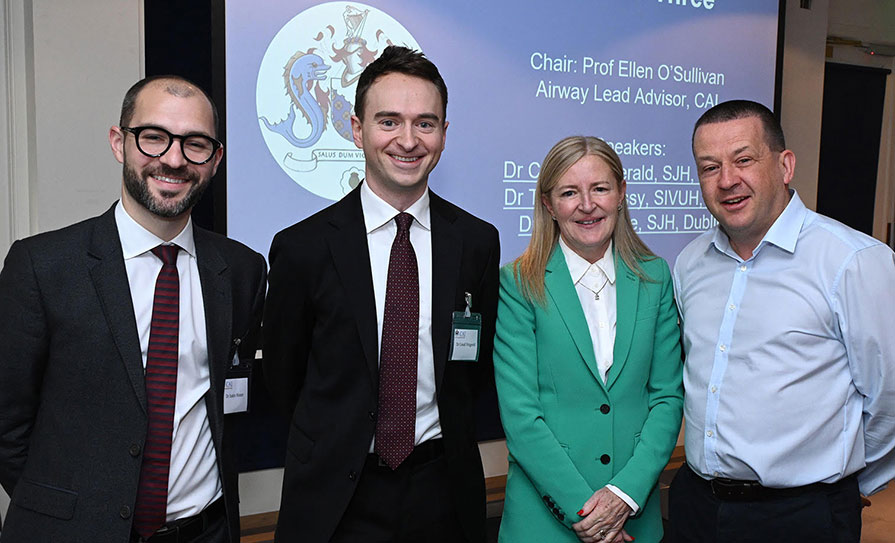There are certain aspects of Irish society that are cause for more than a little shame. The trolley count is one example and as we head into the winter, there is a sense of impending dread, particularly among those who work in the hospital environment.
However, it can be argued that the homelessness crisis is an even greater stain on the character of our little country. Mouth Cancer Awareness Day took place recently and commendably, it focused on the homeless population. Patients without private health insurance face unacceptably long waits for diagnostics, but the homeless are on another level when it comes to paucity of access to healthcare.
Homeless people typically smoke and drink more than the overall population, which of course puts them at greater risk, and typically see a doctor or dentist less often that others — if they ever see one at all.
Prof Blánaid Daly, Professor of Special Care Dentistry at Dublin Dental University Hospital, put it best when she said the ‘chaotic lifestyle’ of living on the streets is often cited. However, homelessness in itself creates this chaos, so it really is a ‘chicken-or-egg’ situation.
Anyone in the UK who is receiving income support is entitled to receive free dental treatment. Back here, there are very limited entitlements with the medical card and a terribly low level of awareness among homeless people as to what they are entitled to. This clearly has to change.
Another aspect of the health challenges for homeless people, and perhaps the most significant, is the massive and unquantified rate of mental illness. Again, one is drawn back to the chicken-or-egg scenario.
Here are a few quick facts from Focus Ireland for you to sift through: 7,941 were homeless nationwide in the week of 19-25 June 2017 — the highest figures ever recorded; the number of families becoming homeless has increased by over 27 per cent since June 2016; one-in-three of those in emergency accommodation is a child; there is an epidemic of the ‘hidden homeless’ — men and women who have to ‘sofa-surf’ because they can’t afford a place of their own due to marital break-up or other circumstances; 61,600 households qualify for social housing, one-in-five of which have been waiting for more than five years.
The fact that we have such a rampant crisis in a so-called first-world country is a shame on our politicians and others with the wherewithal to change the situation.
<div> <p class=”SPORTSQUIZquestionsMIstyles”>But then again, most homeless people don’t vote, do they.
</div> <div> <h3><strong>Dictionary corner </strong></h3> </div>
The rise and rise of Google has meant the demise of the once-beloved dictionary. For many of us, it lies forlorn, gathering dust on the bookshelf beside the Argos catalogue from four years ago. But for so long, it was the go-to mediator of disputes during the Christmas game of Scrabble.
Ironically, Samuel Johnson, the creator of the first comprehensive dictionary back in the 1750s, was honoured recently on what would have been his 308th birthday by Google, which created a ‘Google Doodle’ in his honour — one of those nifty animated drawings seen regularly on the search engine’s homepage.
Johnson was a quirky character worthy of mention. His dictionary took him nine years to complete, not least because he had a fondness for liquor and the company of women and was rarely seen out of bed before midday.
His <em>Dictionary of the English Language</em> was only usurped by the <em>Oxford English Dictionary</em> in 1928, but neither it nor Google could hold a candle to Johnson’s turn of phrase and the singular way he described the meaning of many of his entries.
As a tip of the cap to him, here are a few extracts from his wonderfully irreverent and colourful original dictionary.
<strong>Stockjobber</strong>: “A low wretch who gets money by buying and selling shares.”
<strong>Cough</strong>: “A convulsion of the lungs, vellicated by some sharp serosity.”
<strong>Dull</strong>: “Not exhilaterating (sic); not delightful; as, ‘to make dictionaries is dull work’.”
<strong>Oats</strong>: “A grain, which in England is generally given to horses, but in Scotland appears to support the people.”
<strong>Kickshaw</strong>: “A dish so changed by the cookery that it can scarcely be known.”
<strong>Excise</strong>: “A hateful tax levied upon commodities, and adjudged not by the common judges of property, but wretches hired by those to whom excise is paid.”
<strong>Depucelate</strong>: “To bereave of virginity.”
<strong>Orgasm</strong>: “Sudden vehemence.”
<strong>Patron</strong>: “One who countenances, supports or protects. Commonly a wretch who supports with insolence, and is paid with flattery.”
<strong>Politician</strong>: 1. “One versed in the arts of government; one skilled in politicks [sic]. 2. A man of artifice; one of deep contrivance.”
<strong>Distiller</strong>: “One who makes and sells pernicious and inflammatory spirits.”










Leave a Reply
You must be logged in to post a comment.